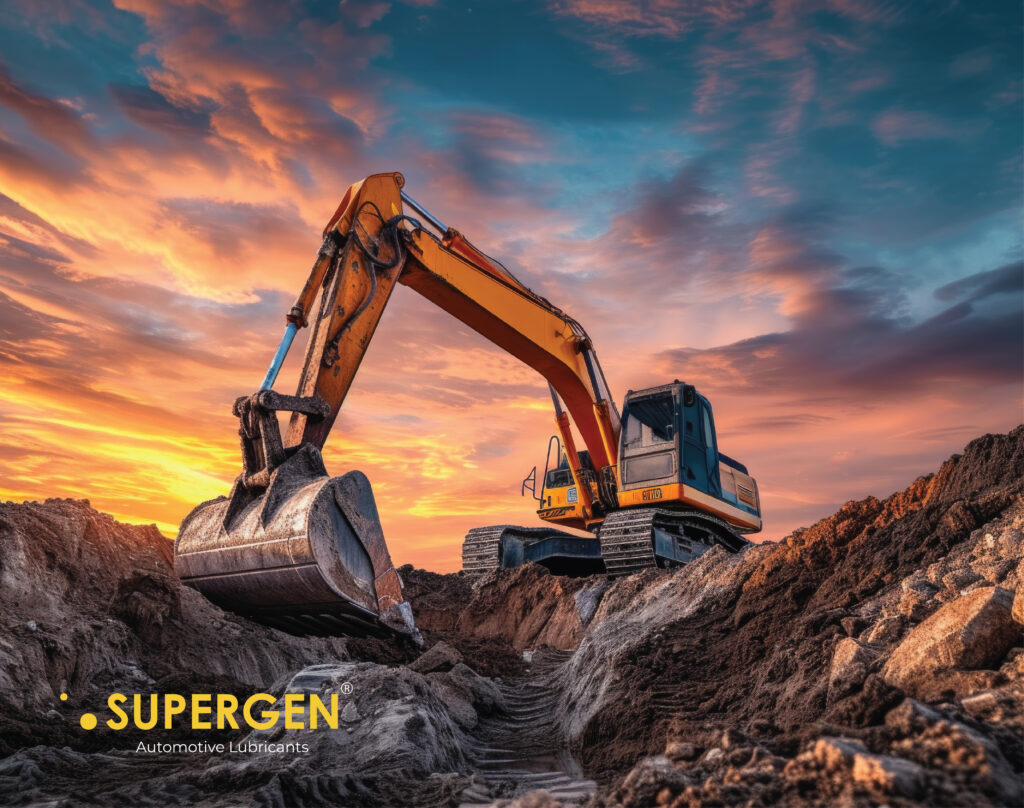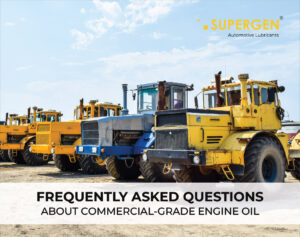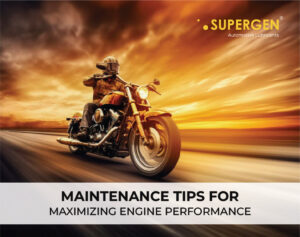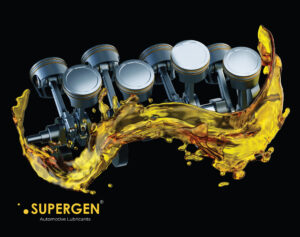Construction equipment operates under some of the harshest conditions imaginable. From extreme temperatures to heavy loads and dusty environments, these machines face constant stress.
While their robust designs help them endure, one key factor in maintaining their performance and longevity is often overlooked: engine oil selection. Choosing the right engine oil can significantly improve equipment performance, reduce downtime, and cut overall operating costs.
In this blog, we’ll explore the vital role of engine oil in construction equipment, the factors to consider when selecting the right oil, and how this simple decision can optimize performance and profitability.
Why Engine Oil Matters in Construction Equipment
Engine oil is the lifeblood of any internal combustion engine, and its role becomes even more critical in construction equipment. These machines often run for extended periods, handle heavy-duty tasks, and face environmental challenges that can quickly degrade substandard oils.
Here’s what high-quality engine oil does:
- Lubrication: Reduces friction between moving engine parts, preventing wear and tear.
- Heat Dissipation: Helps remove excess heat generated by the engine.
- Contaminant Removal: Traps dirt, soot, and debris to keep the engine clean.
- Corrosion Prevention: Protects engine components from rust and chemical damage.
- Sealing Efficiency: Forms a seal between piston rings and cylinder walls, improving compression.
Failing to use the appropriate engine oil can lead to faster wear, reduced efficiency, and frequent breakdowns—issues that construction managers simply can’t afford.
The Impact of Engine Oil on Construction Equipment Performance
The right engine oil can have a profound effect on how construction equipment performs and lasts. Here’s how:
1. Improved Fuel Efficiency
High-quality, low-viscosity oils reduce internal friction, making engines run more smoothly and efficiently. This can result in measurable fuel savings, which is crucial for machines that operate long hours.
2. Extended Engine Life
Engine oils with superior additive technology protect against wear, oxidation, and sludge formation. This extends the life of vital engine components, reducing the need for costly repairs.
3. Optimal Performance in Extreme Conditions
Construction sites often involve extreme temperatures, high dust levels, and heavy loads. Premium oils maintain their viscosity and protective properties under these conditions, ensuring reliable engine performance.
4. Reduced Maintenance Costs
Synthetic and specialized oils often allow for longer intervals between oil changes, minimizing maintenance downtime and labor costs.
5. Environmental Compliance
Cleaner engines emit fewer pollutants. Using the right oil can help meet increasingly stringent environmental regulations.
Factors to Consider When Choosing Engine Oil for Construction Equipment
Selecting the right engine oil involves more than just picking a product off the shelf. Here are the key factors to consider:
1. Manufacturer Recommendations
Always adhere to the equipment manufacturer’s specifications regarding oil type, viscosity grade, and performance standards. This ensures compatibility and optimal performance.
2. Viscosity Grade
Viscosity refers to an oil’s thickness and its ability to flow at various temperatures. Construction equipment often requires oils that can perform well in both high-heat operations and cold-start conditions.
- Multigrade Oils (e.g., SAE 15W-40): Suitable for equipment operating in varying temperatures.
- Monograde Oils (e.g., SAE 30): Used in more stable climates or specific applications.
3. Additive Packages
Look for oils with advanced additives that provide anti-wear, anti-oxidation, and detergent properties. These enhance engine protection and cleanliness.
4. Synthetic vs. Mineral Oils
- Synthetic Oils: Offer superior performance, especially in extreme conditions, but are more expensive upfront.
- Mineral Oils: A cost-effective choice for less demanding applications.
5. Operating Environment
Consider factors like temperature extremes, load intensity, and exposure to dust or moisture. For example, heavy-duty oils with high detergent levels are ideal for dusty environments.
6. API and ACEA Standards
Ensure the oil meets industry standards such as the API (American Petroleum Institute) classification or ACEA (European Automobile Manufacturers’ Association) ratings. These standards indicate the oil’s suitability for modern engines.
Benefits of Regular Oil Maintenance in Construction Equipment
Using the right engine oil is only part of the equation; maintaining it is equally important. Here’s why regular oil maintenance is essential:
- Prevents Contamination: Frequent oil changes remove contaminants like dirt and soot that can degrade engine performance.
- Monitors Engine Health: Oil analysis can detect wear particles or contaminants, signaling potential engine issues before they escalate.
- Optimizes Oil Performance: Over time, even the best oils degrade. Timely replacements ensure the engine receives consistent protection.
- Reduces Downtime: Proactive maintenance minimizes unexpected breakdowns, keeping equipment operational and projects on schedule.
Steps to Optimize Construction Equipment Performance with Engine Oil
To get the most out of your construction equipment, follow these best practices:
- Conduct Regular Oil Analysis: Monitor oil health to detect contaminants or performance degradation early.
- Establish a Maintenance Schedule: Set up a systematic routine for oil changes and inspections.
- Train Equipment Operators: Educate operators on the importance of oil selection and maintenance.
- Store Oil Properly: Keep engine oil in a clean, dry environment to prevent contamination.
- Track Performance Metrics: Use telematics or fleet management software to monitor equipment efficiency and identify issues early.
To Sum It Up
Optimizing construction equipment performance begins with a simple but crucial step: selecting the right engine oil.
High-quality oil tailored to your equipment’s needs can enhance fuel efficiency, prolong engine life, and reduce maintenance costs—all of which are vital for staying competitive in the construction industry.
By prioritizing engine oil selection and maintenance, you not only protect your investment but also ensure that your equipment operates at peak performance, even in the toughest conditions.
FAQ’s
1. How often should I change the engine oil in construction equipment?
The oil change interval depends on the manufacturer’s recommendations, the operating conditions, and the type of oil used. Synthetic oils may allow for longer intervals, but it’s best to consult your equipment manual and conduct regular oil analysis to determine the optimal schedule.
2. Can I use the same engine oil for all my construction equipment?
Not always. Different equipment may have unique engine requirements based on their design and usage. Always check the manufacturer’s specifications for each machine to ensure you’re using the appropriate oil.
3. What’s the difference between synthetic and mineral oil for construction equipment?
Synthetic oils offer superior performance, especially under extreme temperatures and heavy loads, and tend to last longer. Mineral oils are more affordable but may require more frequent changes and provide less protection in demanding conditions.
4. How do I know if the engine oil is degrading?
Signs of oil degradation include a drop in viscosity, darkened or gritty oil appearance, and reduced engine performance. Regular oil analysis can provide precise data on oil health and contamination levels.
5. Can using the wrong engine oil damage my construction equipment?
Yes, using the wrong oil can lead to poor lubrication, increased wear, overheating, and even engine failure. Always use oil that meets the equipment manufacturer’s viscosity and performance standards.








